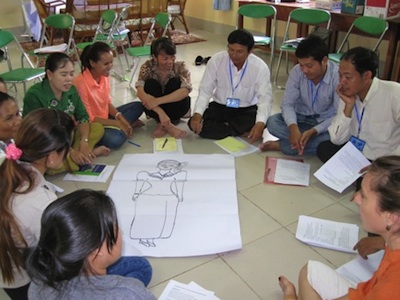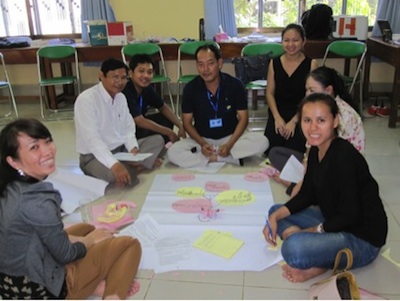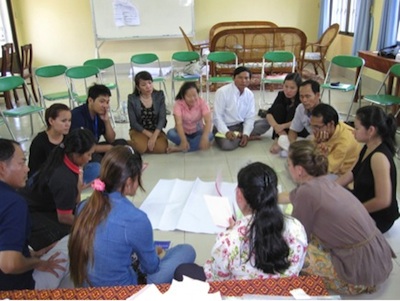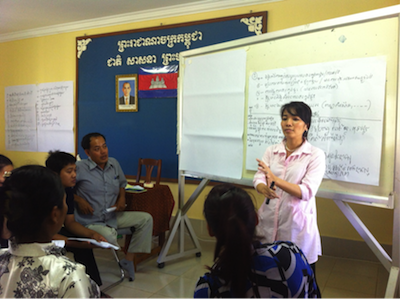Tomorrow the Baseline Participatory Gender Analysis of Fish on Farms will begin. The purpose of this is to gain a better understanding of the role gender plays in mixed-farm livelihood systems. This process involves a number of Participatory Rural Appraisal (PRA) tools to collect the data. A participatory process is particularly important as it involves the community participants, who will be the agents of change, to be engaged as co-investigators. The information gained here will be used to inform a “Gender Aware” behaviour change for the project.

More specifically the tools we will be looking at are:
1) Historical timeline of gender changes – to understand how gender roles have changed in recent years, what factors have made them change, and what community members think about these changes.
2) Bodymap (image of ideal husband/wife) – to illustrate behavioral expectations and images for men/women, and to identify the consequences for people who do not follow it.
3) Market and extension access – to understand different agriculture and aquaculture institutions and services in the community to which men and women have access.
4) Gender division of labour – to view how household management tasks are divided among household members, to understand men’s and women’s views about what constitutes “work’’ and to demonstrate a tool that will help community members assess their situation.
5) Fish preference ranking – to better understand categories and species of fish that men and women prefer for consumption and marketing. And to identify any food taboos associated with different fish species and to explore decisions to sell or to consume fish products.
6) Asset control and management – to understand how men, women, and elders have ownership and decision-making control over critical livelihood assets, and to understand how men and women define “control” over asset-related decisions.
7) Seasonal calendar matrix – to understand seasonal and gender patterns related to the production, sale and consumption of agriculture and horticulture products, and how decisions about sales and consumption are made.
8) Financial management and meanings of income control – to understand the diversity of sources of income from men, women, and other family members, and how different family members are involved in managing, saving, and making decisions about income.
9) Nutrition and coping strategies – to understand the relationship between food and health/well-being; how people try to maintain good health for the family; and how they cope when food supplies are low.
10) Key informant interview – to better understand community leadership opinions on gender issues, opportunities, and priorities in the community.

The implementing staff, comprising of the HKI and NGO field staff officers, were trained over the past week to administer the research exercises. The training was focused on conveying the concept and purpose behind each tool and questionnaire guide. Each tool was reviewed and practiced separately, through team work and participatory learning.

Since the quality of the research is dependent on the responses given, special emphasis was put on asking “probing questions”. This style of questioning is of particular importance, since oftentimes there is a lot that we can learn by simply questioning the responses given, such as “why is that important?” Or “What happened as a result?”

With these skills at hand, the implementing staff are now equipped to facilitate an open dialogue to gain insight into the role gender plays in these communities. Over the next seven days the research will be paced to allow for a full day of data analysis in between each data collection day. This method allows for critical reflection of the findings and minimizes loss of detail.
Stay tuned for more on the Baseline Gender Analysis from our new students in the field (and authors of this post), Pardis Lakzadeh and Hellene Sarin!






